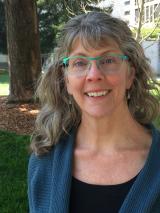Tribal Science 2017 Webinar Series: Harmful Algal Blooms (HABs): Research, Collaborations, and Other Activities
Date and Time
Tuesday 04/11/2017 7:00PM to 8:30PM EDTAdd to Calendar
Details
Topic: Harmful Algal Blooms (HABs): Research, Collaborations, and Other Activities
Speakers:
Cynthia McOliver, Office of Research and Development, EPA
Lesley D’Anglada, Office of Water, EPA
Susan Keydel, Region 9 (Pacific Southwest), EPA
Event Description: The Tribal Science Webinar Series provides a forum for discussion of the complex environmental issues facing many tribal and indigenous communities, and features a wide variety of expert guest speakers from government, academic institutions and other organizations. This month’s webinar will focus on Harmful Algal Blooms (HABs) and the adverse effects on Tribal communities. Presenters will discuss their roles and involvement in ongoing HABs activities, research, and collaborations. Speakers will also present HABs research supported under the Science to Achieve Results (STAR) Grants program.
| Speaker Bios |
|---|
 |
Cynthia McOliver, Ph.D.
Dr. McOliver is an Environmental Health Scientist at NCER. She joined NCER in 2011. She has managed a variety of portfolios within Human Health Team in the Water Health and Innovation Division, including Tribal Environmental Health Research, Food Allergy/Allergenicity, and the Endocrine Disrupting Chemicals, and was a staff member for the quarterly Environment, Health and Society Bulletin. She obtained her undergraduate degree in Biology from the University of Mississippi and a Master's in Public Health from the University of Texas in Houston. Prior to starting her Ph.D. studies, she was a licensed sanitarian/health inspector for the City of Houston Health Department, in the Food Safety Program. She obtained her Ph.D. and post-doctoral training in the Water Program- Environmental Health Sciences from the Johns Hopkins Bloomberg School of Public Health in Baltimore, MD.
|
 |
Lesley D'Anglada, DrPH.
Dr. D'Anglada is a Senior Microbiologist with the United States Environmental Protection Agency (EPA). For the past nine years, Lesley has served as the Harmful Algal Blooms lead for the Office of Science and Technology, Office of Water. Lesley is the manager of the EPA Drinking Water Health Advisories for Cyanotoxins and is the Office of Water representative on the Interagency Working Group for HABHRCA (Harmful Algal Blooms, Hypoxia, Research and Control Act). She is a member of the World Health Organization’s Water Quality and Health Technical Advisory Group (WQTAG) since 2010, an ex-officio member of the National HABs Committee since 2013, and co-editor of special issues of Toxins on HABs and Public Health since 2014. She received her Doctorate in Public Health, Master’s in Environmental Health and Bachelor’s Degree in Industrial Microbiology from the University of Puerto Rico.
|
 |
Susan Keydel
Susan is a physical scientist with the U. S. Environmental Protection Agency (USEPA), in the Pacific Southwest (Region 9), Water Division. She currently serves as the Region 9 coordinator for freshwater cyanoHAB issues, and is the EPA coordinator for California’s Nonpoint Source Program and CWA 319 Grant. She has worked with stakeholders in the Klamath Basin on cyanoHAB issues, TMDLs, restoration efforts and water quality assessments related to dam removal settlements. She has reviewed Integrated Reports and TMDLs, and previously, she worked on hazardous waste site remediation as a Remedial Project Manager in EPA Region 9’s Superfund Division, at Massachusetts Dept. of Environmental Protection, and with private contractors doing human health and ecological risk assessments. Sue has an M.S. in Agricultural and Environmental Chemistry and Toxicology from the University of CA – Davis, and a B.A. in Environmental Sciences from Hampshire College.
|
Presentations:
DISCLAIMER: The views expressed in this presentation are those of the authors and do not necessarily reflect the views or policies of the U.S. Environmental Protection Agency. Mention of trade names or commercial products does not constitute endorsement or recommendation for use.
For additional information, contact Aaron Ferster at (202) 564-0321 or ferster.aaron@epa.gov.
Hosted By
EPA



